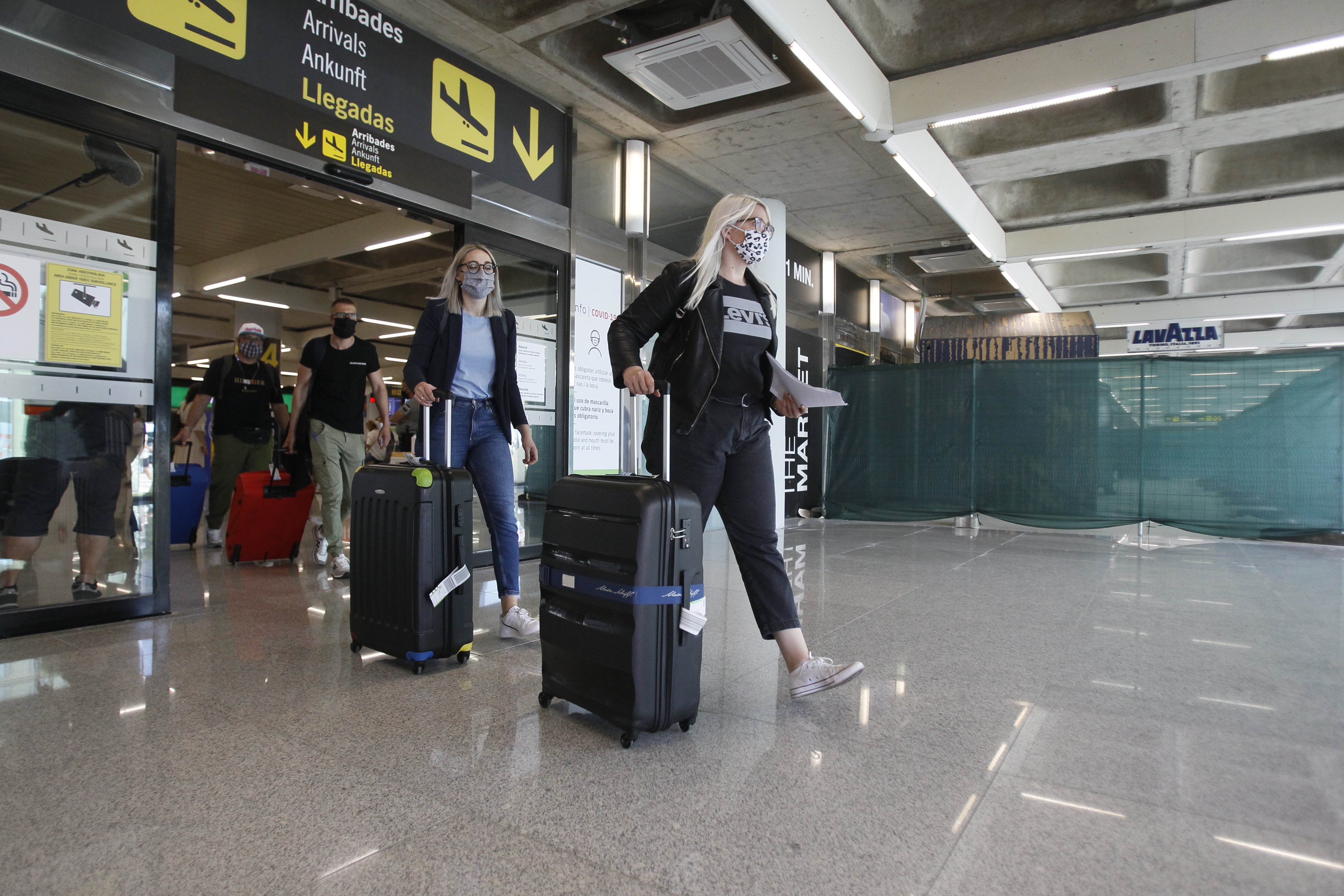The German health authorities have this Friday declared the whole of Spain - including the Balearic Islands and Canary Islands - to be "areas of basic risk" for Covid-19, in the context of the increases in the Covid incidence recorded throughout the Spanish state.
This "basic risk" status, in which Catalonia has already been included for a week, is the lower classification of two levels used by the German government, and includes countries or territories that have registered a seven-day cumulative incidence of 50 new infections per 100,000 inhabitants. Currently, the 14-day incidence rate of Covid-19 in Spain stands at 253 per 100,000 inhabitants.
Along with Spain, the German authorities have added Bahrain, Ireland and Trinidad and Tobago.
A test on return to Germany
The measure implies that on returning from Spain after July 11th, a PCR test or a negative antigen test, proof of full vaccination or of having been infected by the virus in the past must be presented. With any of these options, travellers will not need to quarantine on return.
By contrast, German health authorities no longer include as basic areas of risk the territories of Saudi Arabia and the Swedish province of Kronoberg, while the Pacific country of Fiji as well as Cyprus have been classified in the list of "high-incidence" areas - the higher classification used by the Robert Koch Institute (RKI), government agency in charge of pandemic control in Germany.
France advises against booking holidays
In a similar line, the French government has discouraged its citizens from booking holidays in Spain and Portugal due to the explosion of contagion in the two countries, both of which are among the main tourist destinations for French holidaymakers, and it is studying implementing measures to restrict travel.
"Those who have not yet booked, should avoid Portugal and Spain in their destinations," France's secretary of state for European affairs, Clément Beaune, told national television, saying that "it is cautious advice, a recommendation I emphasise".
Beaune justified this because the situation there is "particularly concerning" and said that "in the coming days there could be a strengthening of measures affecting travel".
British bookings increase
By contrast, British airlines and tour operators are seeing a rise in holiday bookings in Spain following their government’s announcement that, from 19th July, it will not require quarantines for its nationals returning to the UK from the countries it lists as amber, including Spain, if they are fully vaccinated.
British Airways stated that hours after the UK executive’s announcement on the change, digital searches increased 96% on the previous day. The most popular destinations Googled include Barbados, Palma, Ibiza, New York, Antigua, Malta and Malaga.
The ABTA travel agents' association has warned that tour package prices could rise "as people make bookings."
In particular, Easyjet has announced that bookings for travel this summer to destinations classified in the amber category increased by 400%, while specific holiday bookings were up by even more in the hours after the announcement, compared to the previous week’s booking levels.
To meet this demand, it has put on sale more than 145,000 additional seats to fly between the United Kingdom and the countries on the amber list, of which 65,472 correspond to routes with Spain, and of these, 11,916 are for Malaga.
Covid, out of control in Catalonia
Meanwhile, in Catalonia, the Delta variant continues to wreak havoc. Restrictions on nightlife have come into force this Friday due to the high transmission recorded in the last two weeks, especially among younger age groups, whose vaccination has only begun this month.
For the second day in a row, the number of infections more than 8,000 infections have been registered in 24 hours, while hospital admissions are now also increasing. More than 30,000 cases have been diagnosed in the last week, a large proportion of them asymptomatic. At the same time, the vaccination campaign is proceeding, having been open to all those over 16 for the last week, although priority is being given to second doses for two older age groups where significant percentages have yet to be fully vaccinated: those over 60, and the 40 to 49 age group.
Main image, travelers from Germany arrive at Palma de Mallorca Airport / Europa Press

